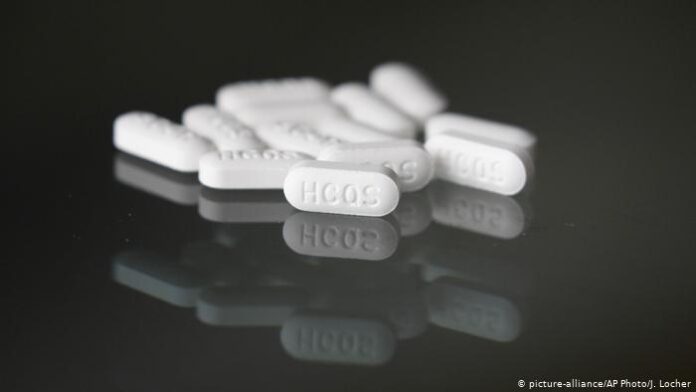A new study clearly shows that the antimalarial chloroquine is completely unsuitable for treating an infection with SARS-CoV-2. The long and heated debate about the drug could finally be over.
Yes. No. Maybe. The question of whether the anti-malaria drug chloroquine and its close relative hydroxychloroquine could possibly be used against the novel coronavirus has been hotly debated in recent months.
Yes, chloroquine could be effective against SARS-CoV-2. No, chloroquine could actually be dangerous. The medication may or may not work. Studies up to now had given a picture that was extremely confusing and inconclusive.
But research findings by scientists from the German Primate Center (DPZ) in Göttingen, the Charité in Berlin and the University Hospital in Bonn now speak a very clear language: Chloroquine is not suitable for the treatment of SARS-CoV-2 infections. It simply does not work.
In view of his research results, Stefan Pöhlmann, head of the infection biology unit at the DPZ and one of the study authors, is convinced “that clinical studies are no longer justified.”
Since the confusing debate about chloroquine could now come to an abrupt end due to the work of the scientists from Göttingen, it is worth taking a closer look: What have Pöhlmann and his colleagues done differently?
Can the file “Chloroquine against SARS-CoV-2” now be finally closed?
Experiments on human cells
In recent months, there has been a series of studies giving rise to hopes of chloroquine being an effective drug against SARS-CoV-2. However, these trials had a catch: They were not carried out on human cells.
Read more: COVID-19 half a year later: What have we learned?
“The antiviral activity of chloroquine and hydroxychloroquine was initially shown with a monkey cell line, the so-called Vero cells,” explains Pöhlmann. “These cells are very often used by virologists for experiments.”
Vero cells are a lineage of cells derived from kidney cells of the African green monkey. Although monkey Vero cells are useful for many cell culture experiments, they are unsuitable for in vitro experiments with the new coronavirus, says Markus Hoffmann, an infection biologist who also worked on the study.
Hoffmann is involved in investigating the different ways in which new viruses enter cells. “The Vero cells are unable to map the specific entry route of the virus,” he says.

